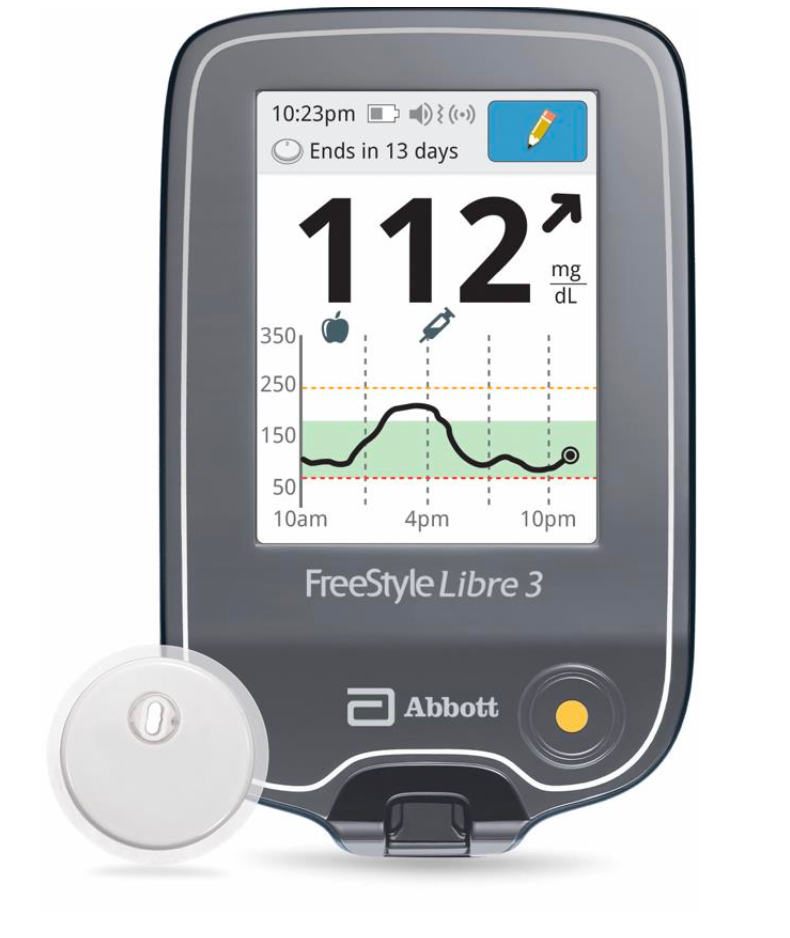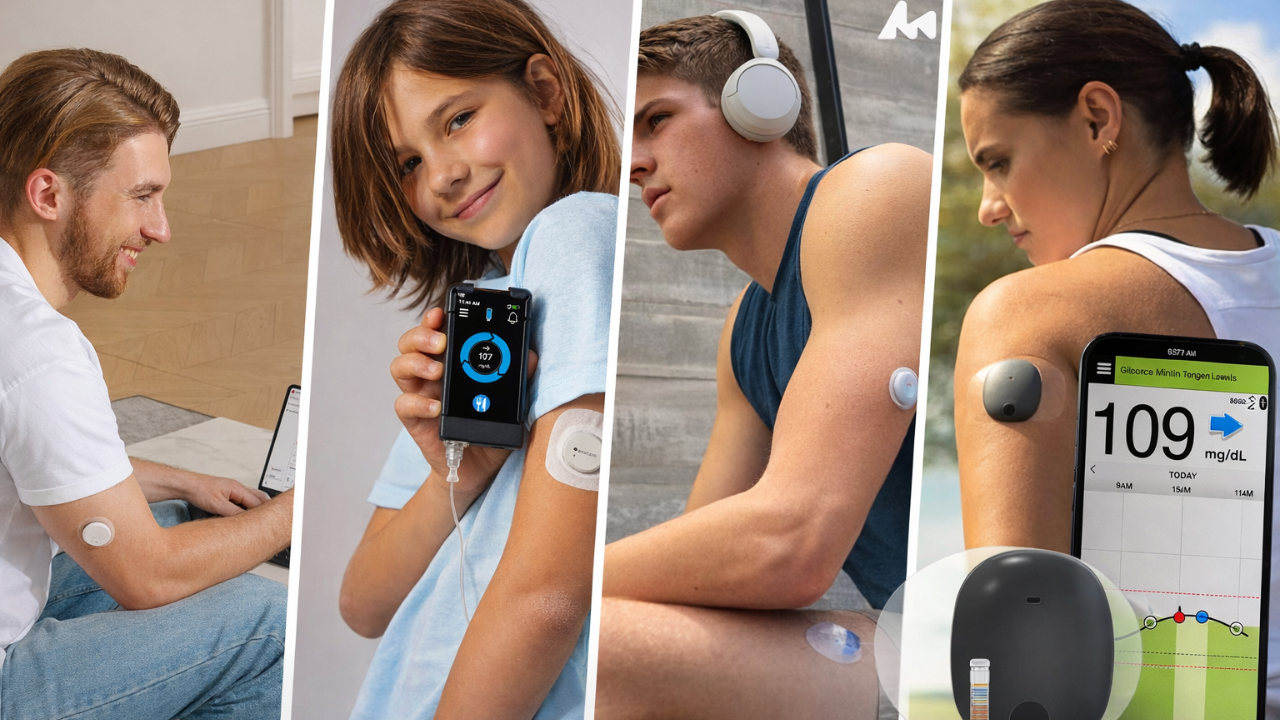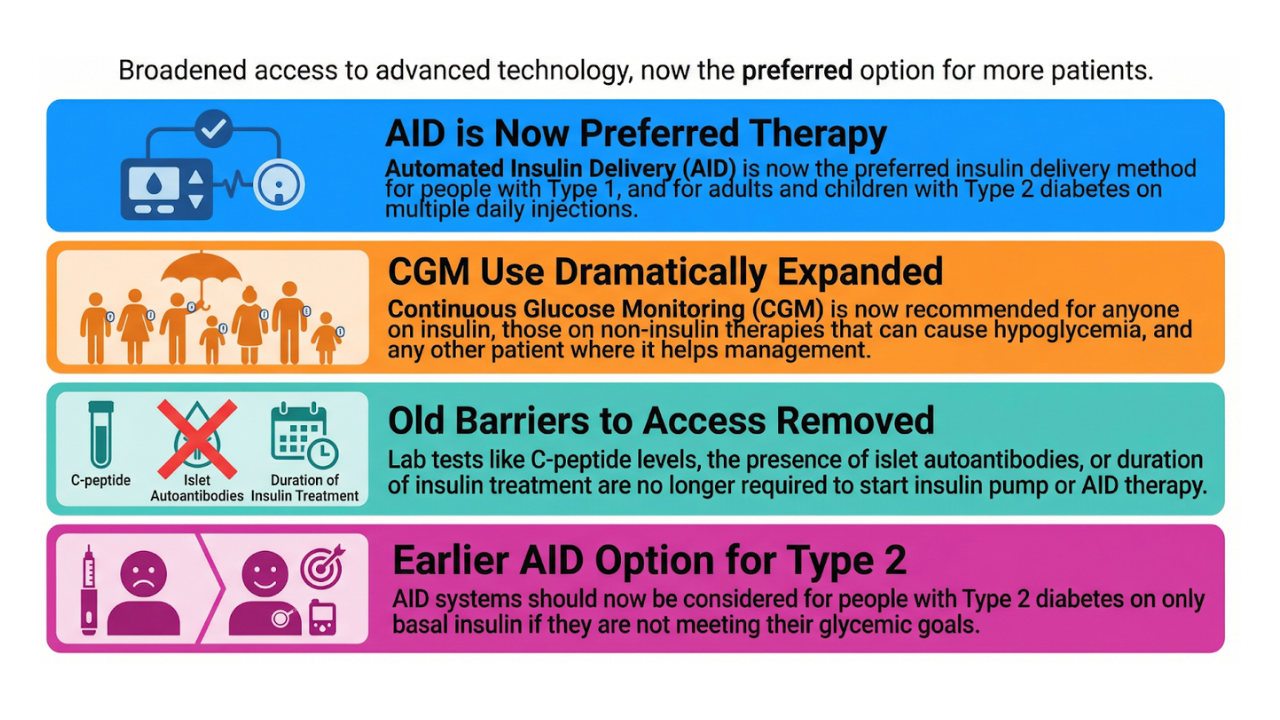Diabetes Tech Update May 2023
May 04, 2023
We all know that technology changes rapidly, and the world of diabetes technology is no exception.
Wondering what's new?
Lucky for you, we've done the hard work of keeping you up to date on the most important technological advances!
Read the updates from the last month below and see how glycemic sensors and closed-loop systems are always improving, giving healthcare providers and people with diabetes a whole host of new ways to manage their condition.
So grab your popcorn (or another snack) and let's dive in!
Get Access To Updated Diabetes Technology Courses
1. MiniMed 780G receives FDA label
"The MiniMed™ 780G system is the only system with meal detection technology* that provides automatic adjustments and corrections† to sugar levels every 5 minutes§. Meal detection technology helps cover for underestimated carb counts or an occasional missed meal bolus." - medtronicdiabetes.com
The MiniMed 780G finally obtained its long-awaited FDA label on 21-4-2023, and this in conjunction with the Guardian 4 and the Extended Wear Infusion Set (EWIS).
Although the algorithm of the MiniMed 780G has not changed, it is now promoted as "meal detection technology."
With this, Medtronic wants to emphasize the fact that the Minimed 780G is the only closed-loop system to provide an autocorrected bolus every 5 minutes.
As of 15-5-2023, people in the US can switch from the older MiniMed 770G to the MiniMed 780G.
It is also interesting that the Guardian 4 sensors will be sold at the same price as the Guardian 3 sensors, something that is not really the case outside the US.
What's next for the MiniMed 780G?
- Integration of the Simplera CGM (now also called "Instinct"): the Simplera CGM has been submitted for CE label in August 2022, and for FDA label in February 2023. A US-based study with 250 children and adults with type 1 diabetes on the MiniMed 780G, Simplera CGM and EWIS has recently commenced.
- Indication in people with type 2 diabetes: an ongoing American study with 300 people with type 2 diabetes is evaluating the use of the MiniMed 780G in this population. The study includes the use of Simplera CGM as well.
- Indication in children 2-6 years: after a smaller study with n=35 children with type 1 diabetes, a larger European LENNY study with n=100 children between the ages of 2 and 6 years has now started. The intention is to apply for FDA and CE labeling (for the MiniMed 780G) in these very young children like all other commercial closed-loop systems.
2. Changing landscape of CGM coverage
"The new Medicare criteria has opened the flood gates and likely other payers will follow. This ruling is so impactful to the whole diabetes community, and I think we quickly need to get all hands-on deck to understand CGM and its data and integrate it into primary care workflow. This reminds me of virtual visits. It used to be this novel thing that only some centers were doing and then well covid hit, and now it’s just normal to have virtual care almost everywhere. CGM is about to be the standard of care everywhere. And just how we quickly adapted to virtual care, we need to quickly adapt to incorporating CGM. We can’t ignore it. We need to help the primary care teams to get comfortable with accessing, viewing and interpreting the data.” - dr. Diana Isaacs (Cleveland Clinic) - interview Close Concerns
CGM is recommended in everyone with diabetes who uses insulin (cfr ADA Standards of Medical Care 2023), and according to the Endocrine Society, also in everyone on sulfonylurea.
Of course, it's easy to recommend this if you don't have to pay for it yourself.
Fortunately, we are also seeing more and more health insurance companies following these guidelines:
- The US: Since 17-4-2023, the FreeStyle Libre2 and the Dexcom G7 is reimbursed for people on Center for Medicare and Medicaid Services' (CMS) who are on insulin (1 or more injections per day) or have experienced a level 2 or 3 hypoglycemia. Both Abbott and Dexcom have developed a nice website for this large new population.
- Canada: Since 27-4-2023, the Dexcom G6 is reimbursed for people on the Non-Insured Health Benefits (NIHB) program who use insulin (1 or more injections per day).
- Wales: "In Wales, current guidance is that anyone on insulin should be eligible for intermittent CGM. It was presented to funders as an alternative to BGM that saves physician time." - dr. Emma Wilmot - Diabetes UK 2023
3. FreeStyle Libre2 and 3 receive FDA label for use in closed-loop systems and pregnancy
“Like acetaminophen before it, the ascorbic acid challenges can be looked at in the rear-view mirror. Neither patients nor clinicians will have any idea how difficult both of these interferences were to resolve, but once again science and innovation prevails, and those who use AID systems will have another choice. [...] ” - dr. Irl Hirsch - interview Close Concerns
On 6-3-2022, the FreeStyle Libre2 and Libre3 received an FDA label for use in closed-loop systems and in pregnancy.
These sensors had already been CE-labeled for some time, but for people in Europe an FDA-label of these sensors is also important.
It is only now that work will be done to integrate the Libre sensor into closed-loop systems such as Tandem Control IQ and Omnipod 5.
Caution: this FDA label is for "modified sensors" that will be available "later this year."
- These modified sensors will be approved from 2 years old instead of 4 years old,
- and last 15 days instead of 14 days.
- The known interaction with high doses of vitamin C would be much less pronounced with these modified sensors.

On top of that, also the reader of the Libre3 received an FDA label on 14-4-2023.
The first closed-loop system with the Libre3 (mylife Loop) is currently being used in Germany by more than 450 people with type 1 diabetes.
Last month, mylife Loop with the Libre3 was also launched in the Netherlands and in the UK.
4. FDA label for Omnipod GO

Insulet received an FDA label on 25-4-2023 for their Omnipod GO for people with type 2 diabetes on basal insulin.
- This pod has no controller and cannot be linked to a CGM.
- It contains a fixed dose of basal insulin for up to 3 days.
- There will be 7 versions with 7 different doses of insulin between 10 and 40 E per day.
- It can be used with Novorapid, Fiasp, Humalog and Lyumjev.
The idea is that this Omnipod GO would be started primarily by general practitioners,
and that people can then move on to the Omnipod 5 more easily in second time.
In fact, the Omnipod 5 is currently being widely tested in people with type 2 diabetes.
Commercialization of the Omnipod GO is planned for 2024, at a time when Novo's new weekly insulin (Icodec) will probably also be on the market.
So it remains to be seen what these people will find on basal insulin hat easiest.
5. Insulet halts sales of GlucoMen Day Pump in Germany with lawsuit
"Attention is being paid to whether the suspension will be extended to other European markets. EOFlow plans to continue its legal defense, saying that it expected the patent lawsuit against the product." - businesskorea.co.kr

On 21-3-2023, Insulet filed a lawsuit against Menarini, the distributor of the GlucoMen Day Pump.
This insulin pump is made by EoFlow, and there is allegedly an infringement of an Insulet patent.
The pumps, of course, are very similar.
For now, the GlucoMen Day Pump may no longer be sold in Germany.
It remains to be seen whether this lawsuit will also affect sales of the Glucomen Day Pump in other countries.
In conclusion, the last month was full of surprises in diabetes technology. We learned that the FDA has been very active with a new approval for the MiniMed 780G, the Omnipod GO and the Freestyle Libre2 and 3 for use in closed-loop systems and in pregnancy. Reimbursement for CGM is slowly but surely expanding, including to people on only 1 injection of insulin per day. And although Eoflow apparently expected it, we were quite surprised by Insulet's lawsuit against Menarini.
If you are looking for which closed-loop systems are currently available and what the main advantages and disadvantages are, download the overview of the 10 best closed-loop systems here.
And remember, you can always contact your diabetes team if you want more information about which technology works best for you.
These days we have many tech tools to help us through tough times - let's make sure we use them well!
Greetings,





